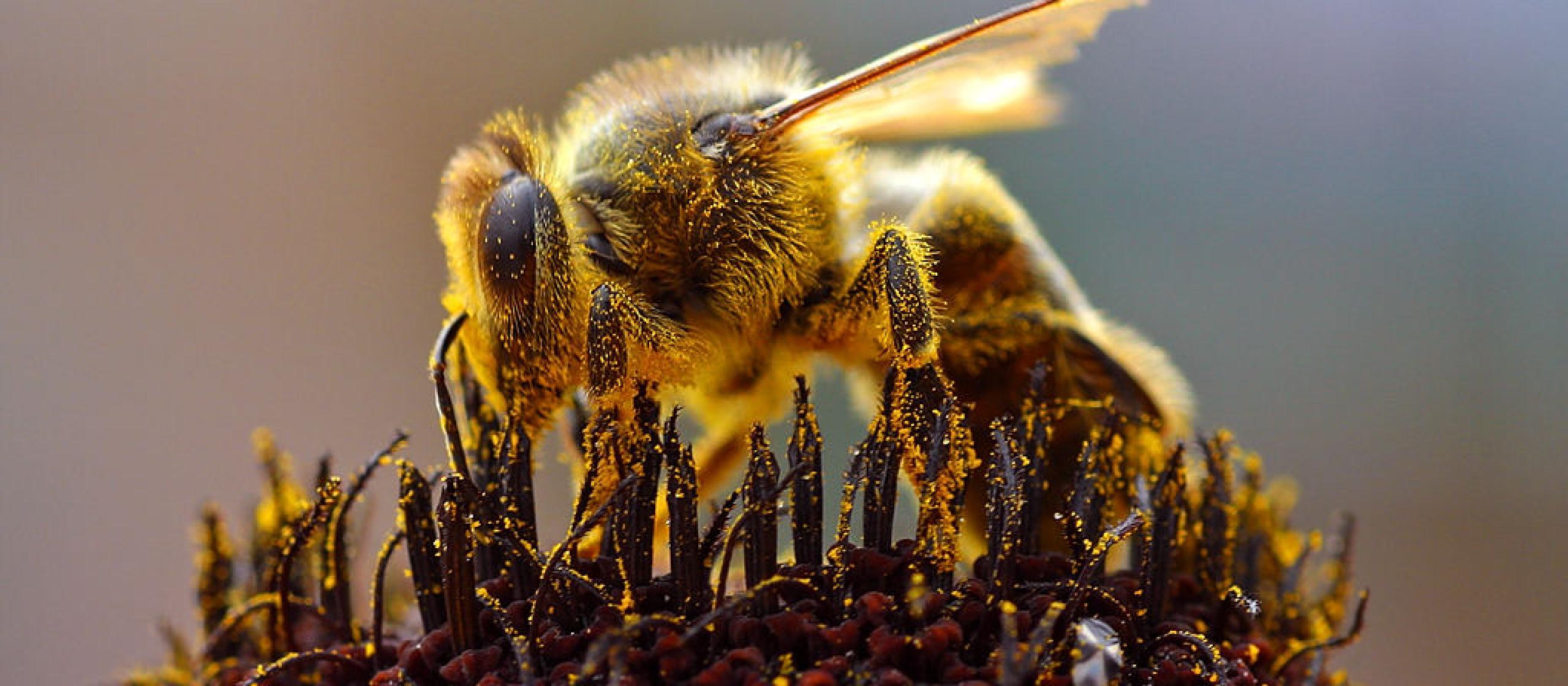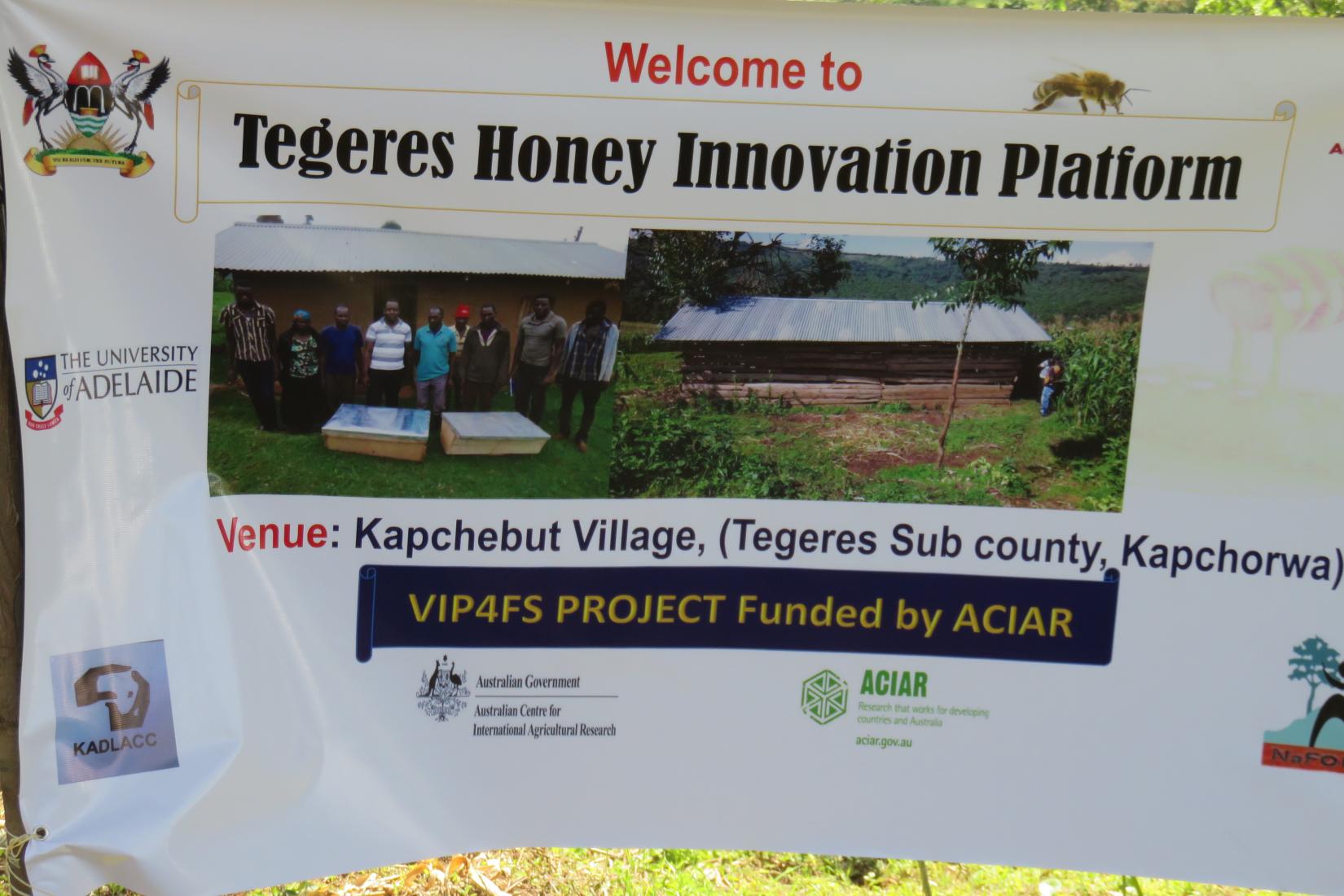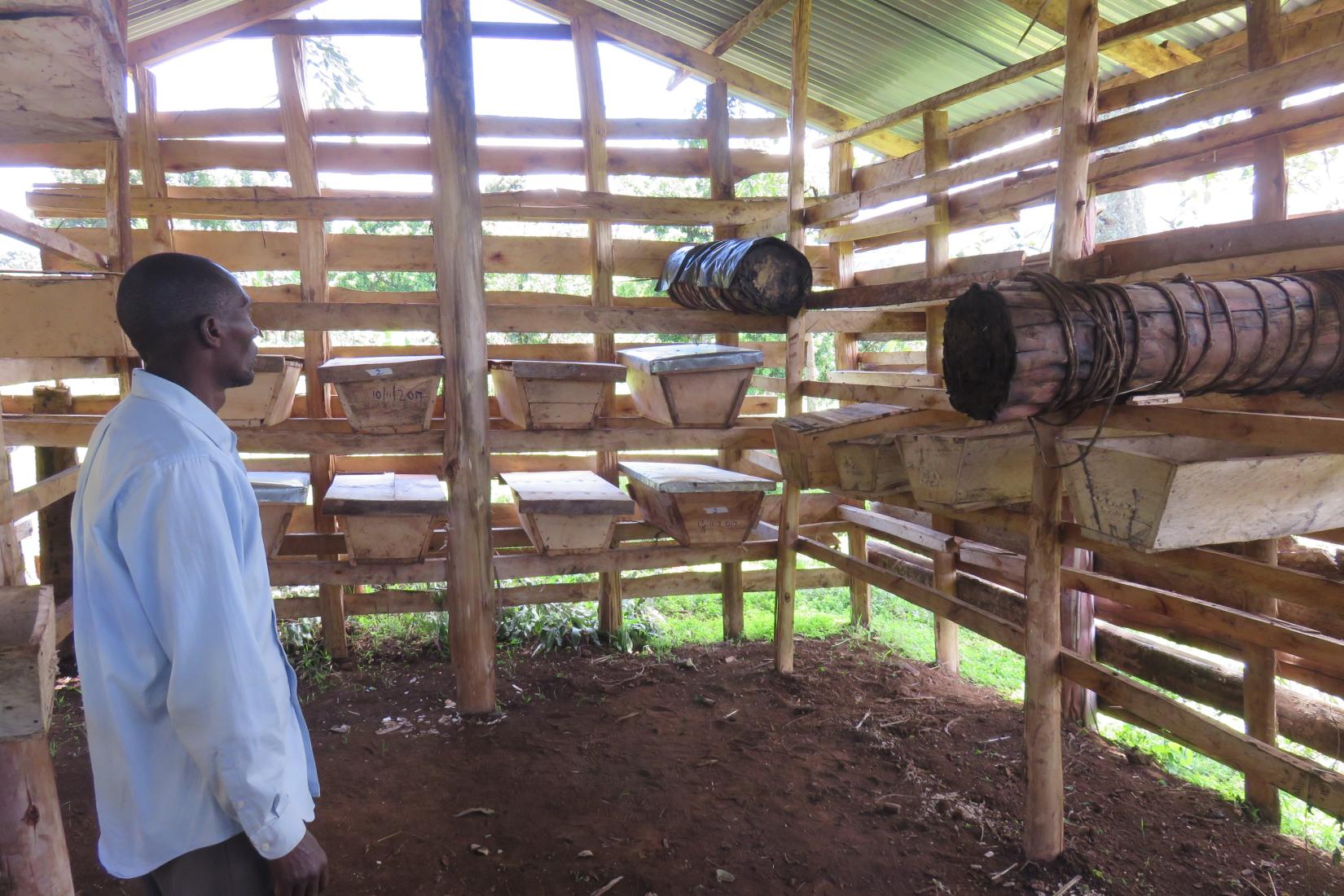The additional funds have also seen the establishment of the community’s first beehive house. Before joining the project, beekeepers would keep their hives in the forest at a nearby National Park, with many hives stolen or ravaged by wild animals. By centralising the hives in the village, beekeepers are able to closely monitor their hives and increase production yields when harvesting honey.
In its three-year plan, the beekeeping group aims to build more beehive houses and increase its hives to 1500 and establish a honey processing plant capable of producing 22,500 litres every six months. Meeting this target would mean a half-yearly income of UGX 323 million, or AUD$116,000, money that would go a long way to ensuring local food security.
OVER THE HORIZON
As well as past and present bee projects, preliminary research is underway to better understand and overcome the decline of honeybee industries in the Pacific and to take advantage of strong market demand for honey and other bee products.
Market demand was investigated recently by an ACIAR-funded study, Market Value Chain Analysis of Honey Production in PNG, the Solomon Islands and Fiji, highlighting the unrealised potential and current decline of bee keeping in these countries.
The partnerships and resources that underpinned this study are being developed for a new project aiming to improve the management, productivity and profitability of beekeeping in the Pacific. The project hopes to do this by; enhancing pest and disease management, including biosecurity; understanding barriers to and benefits from entry into beekeeping enterprises, with a particular focus on women’s inclusion; and building local capacity to produce and market quality bee products.
The new project will be implemented over the coming months as part of ACIAR’s Livestock Production Systems Research Program.
GET INVOLVED
The United Nations General Assembly declared 20 May World Bee Day in 2017, with the resolution co-sponsored by 115 UN Member States, including the USA, Canada, China, the Russian Federation, India, Brazil, Argentina, Australia and all the European Union Member States.
You can get involved in World Bee Day by visiting the official website, local Facebook page, or learn more about these amazing creatures by downloading official World Bee Day mobile content.





